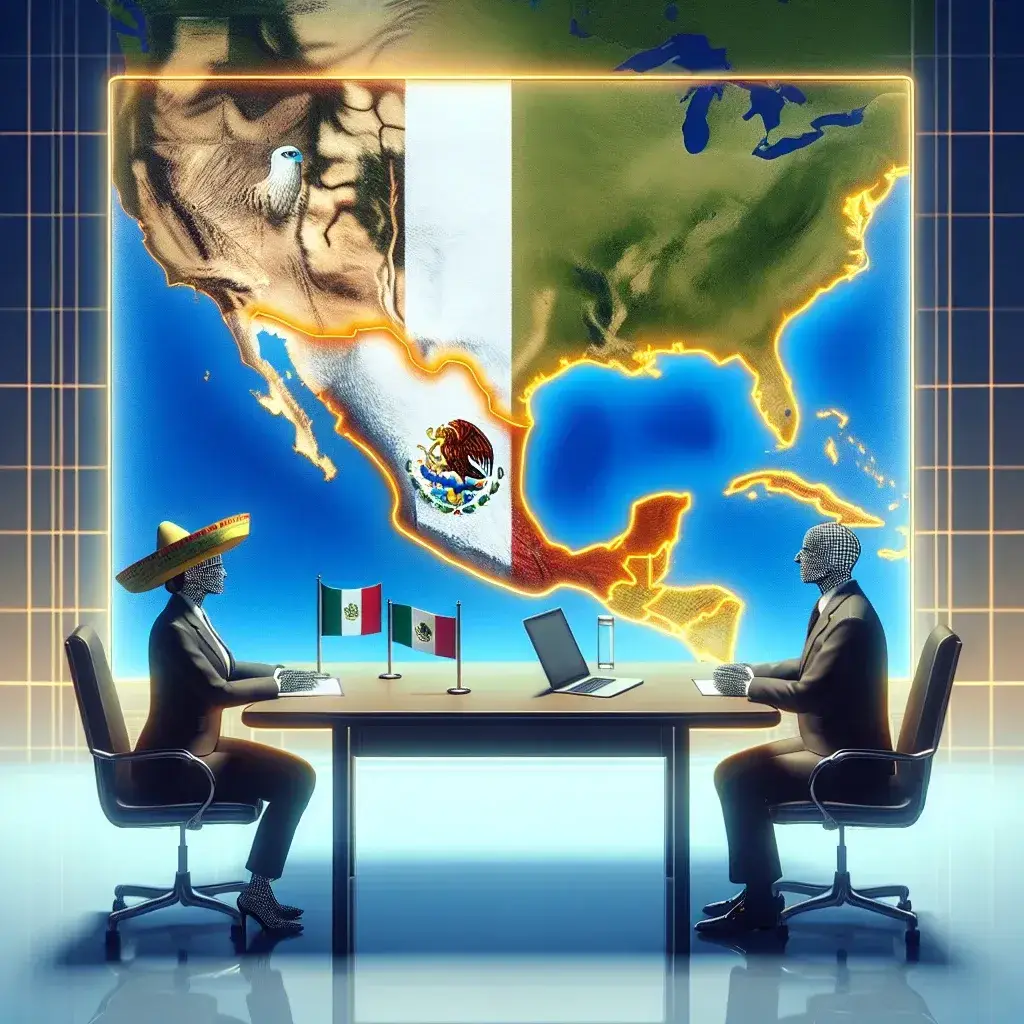The Rising Tension: Mexico’s Stand Against Google’s Geographic Naming
In an unprecedented move that has caught the attention of international observers, Mexico has taken a firm stance against tech giant Google, threatening legal action over the controversial naming of the Gulf of Mexico as the ‘Gulf of America’ in some of its platforms. This diplomatic dispute highlights the complex intersection of technology, sovereignty, and cultural identity in our digital age.
Historical Context of the Gulf of Mexico
The Gulf of Mexico, a partially landlocked body of water bordered by the United States, Mexico, and Cuba, has been known by its current name for centuries. The name has deep historical roots dating back to Spanish colonial times and holds significant cultural importance for Mexico and other surrounding nations.
Origins of the Name
Named after the country of Mexico, this body of water has been an integral part of the region’s identity since the 16th century. The Spanish conquistadors and early explorers used this name in their maritime charts and documents, establishing a historical precedent that has remained unchanged for generations.
The Controversy Unfolds
The dispute emerged when Mexican authorities discovered instances where Google’s platforms appeared to be using or suggesting the alternative name ‘Gulf of America.’ This seemingly simple change in nomenclature has sparked a serious diplomatic concern, leading to Mexico’s threat of legal action against the technology company.
Mexico’s Legal Position
- Violation of historical naming rights
- Potential impact on international maritime agreements
- Cultural and heritage preservation concerns
- Sovereignty implications
The Significance of Geographic Names
Geographic names are more than mere labels on a map; they represent historical legacy, cultural identity, and national sovereignty. The controversy highlights several critical aspects:
Cultural and Historical Importance
- Preservation of cultural heritage
- Historical documentation and continuity
- National identity and pride
- International recognition and standards
Google’s Role and Responsibility
As a global technology leader, Google’s mapping services and geographic information systems have become de facto standards for millions of users worldwide. This position comes with significant responsibilities:
Digital Cartography Challenges
- Accuracy in geographic representation
- Respect for international naming conventions
- Balance between innovation and tradition
- Cultural sensitivity in digital mapping
International Implications
This dispute extends beyond a simple naming controversy, touching on broader issues of digital sovereignty and cultural preservation in the modern era. The situation raises several important considerations:
Diplomatic Considerations
- International maritime law
- Bilateral relations between Mexico and the United States
- Digital sovereignty in the modern age
- Precedent for future naming disputes
Legal Framework and Potential Outcomes
Mexico’s threat of legal action brings attention to the complex legal framework surrounding geographic naming rights and digital representation:
Legal Considerations
- International maritime law applications
- Digital content jurisdiction
- Intellectual property rights
- International naming conventions and standards
The Role of International Organizations
Several international bodies play crucial roles in geographic naming conventions and dispute resolution:
Key Organizations
- United Nations Group of Experts on Geographical Names (UNGEGN)
- International Hydrographic Organization (IHO)
- International Maritime Organization (IMO)
- Regional geographic naming authorities
Public Response and Media Coverage
The controversy has generated significant public interest and media attention, highlighting various perspectives:
Stakeholder Reactions
- Mexican public opinion
- International media coverage
- Academic and expert analysis
- Social media discussions and debates
Future Implications and Potential Resolution
The outcome of this dispute could have lasting implications for:
Long-term Impact
- Digital mapping standards
- International naming conventions
- Technology company responsibilities
- Cultural preservation in the digital age
Moving Forward: Solutions and Recommendations
To resolve this situation, several approaches could be considered:
Potential Solutions
- Diplomatic negotiations between parties
- International mediation
- Technical solutions for geographic naming
- Policy updates for digital mapping platforms
Conclusion
The dispute between Mexico and Google over the ‘Gulf of America’ naming controversy represents a significant moment in the intersection of digital technology, cultural heritage, and international relations. As the situation continues to develop, it serves as an important reminder of the need to balance technological innovation with respect for historical and cultural traditions.
The resolution of this dispute will likely set important precedents for how geographic names are handled in the digital age, potentially influencing future interactions between nations and technology companies. It underscores the importance of careful consideration in geographic naming conventions and the need for clear international standards in digital cartography.

